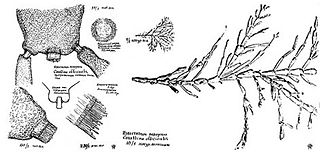
Corallina officinalis is a calcareous red seaweed which grows in the lower and mid-littoral zones on rocky shores.
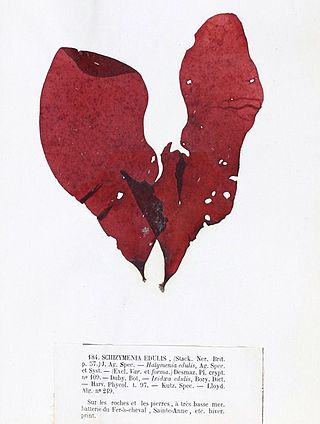
Dilsea carnosa, commonly known as the poor man's weather glass or the sea belt, is a species of red algae in the Dumontiaceae family of the order Gigartinales.

Polysiphonia lanosa is a common species of the red algae (Rhodophyta) often to be found growing on Ascophyllum nodosum.
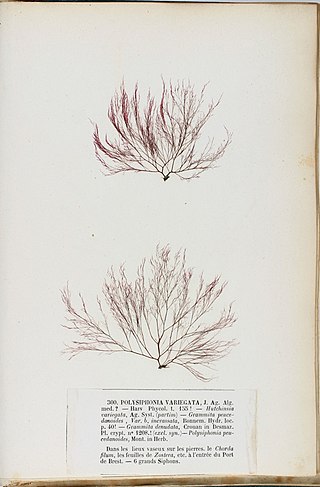
Polysiphonia denudata is a small red alga, Rhodophyta, growing as tufts up to 20 cm long without a main branch axis.
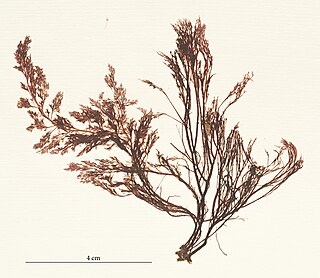
Polysiphonia elongata is a small red marine algae in the Rhodophyta.
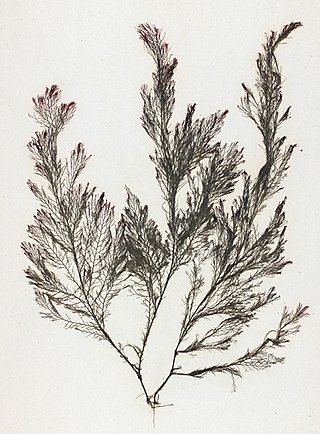
Polysiphoides fucoides (Hudson) Greville is a common marine alga in the Division Rhodophyta.

Melanothamnus harveyi, Harvey's siphon weed, is a small marine red alga in the division of Rhodophyta.
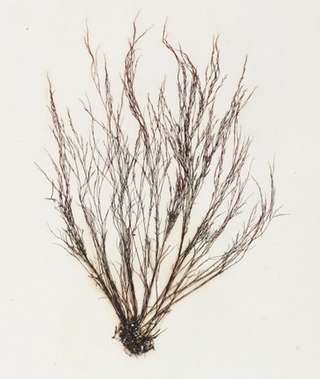
Polysiphonia nigra is a species of marine alga in the division Rhodophyta.
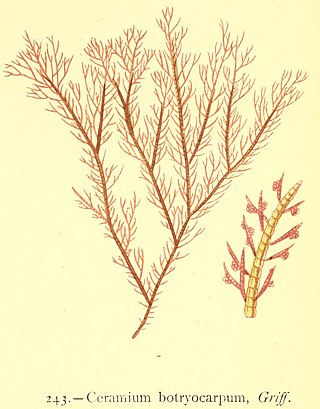
Ceramium botryocarpum is a small red marine alga in the Division Rhodophyta.

Ceramium shuttleworthianum is a small marine red alga.
Brongniartella byssoides Schmitz is a small red marine alga.

Halidrys siliquosa is a large marine brown algae.
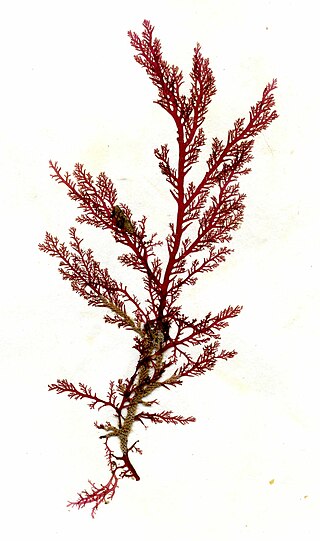
Plocamium cartilagineum is a medium-sized red marine alga.

Membranoptera alata is a small red alga in the Rhodophyta.

Phycodrys rubens is a red marine alga of up to 30 cm long.

Phyllophora crispa is a medium-sized fleshy, marine red alga. This alga forms dense mats of up to 15 cm thickness, which influence environmental factors, thus creating habitat for several associated organisms.
Phyllophora pseudoceranoides, the stalked leaf bearer, is a small marine red alga.
Phyllophora sicula, the hand leaf bearer, is a small red marine alga.
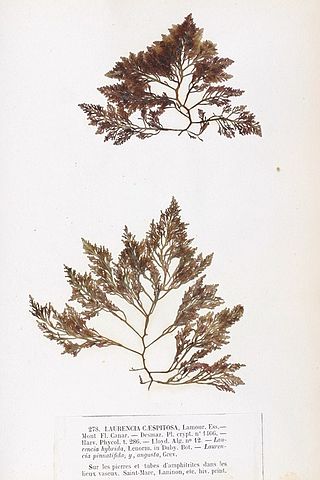
Osmundea hybrida is a fairly small marine red alga.
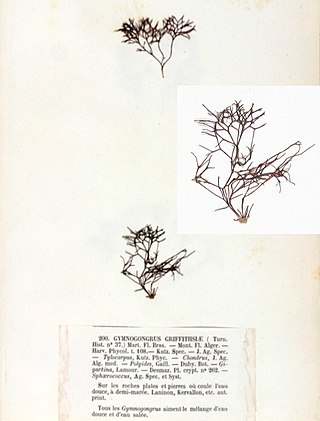
Gymnogongrus griffithsiae is a small uncommon seaweed.

















